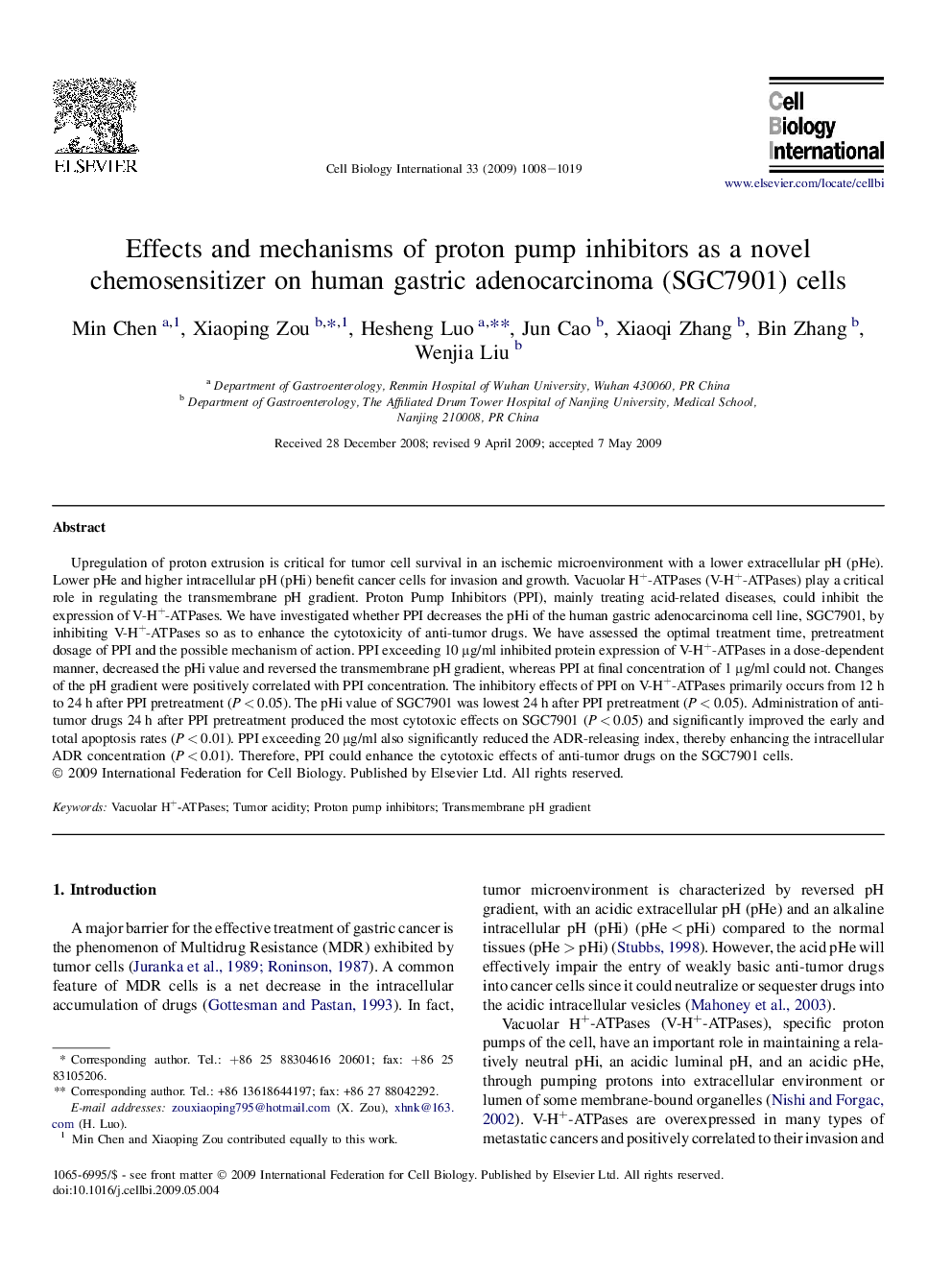| Article ID | Journal | Published Year | Pages | File Type |
|---|---|---|---|---|
| 2067048 | Cell Biology International | 2009 | 12 Pages |
Abstract
Upregulation of proton extrusion is critical for tumor cell survival in an ischemic microenvironment with a lower extracellular pH (pHe). Lower pHe and higher intracellular pH (pHi) benefit cancer cells for invasion and growth. Vacuolar H+-ATPases (V-H+-ATPases) play a critical role in regulating the transmembrane pH gradient. Proton Pump Inhibitors (PPI), mainly treating acid-related diseases, could inhibit the expression of V-H+-ATPases. We have investigated whether PPI decreases the pHi of the human gastric adenocarcinoma cell line, SGC7901, by inhibiting V-H+-ATPases so as to enhance the cytotoxicity of anti-tumor drugs. We have assessed the optimal treatment time, pretreatment dosage of PPI and the possible mechanism of action. PPI exceeding 10 μg/ml inhibited protein expression of V-H+-ATPases in a dose-dependent manner, decreased the pHi value and reversed the transmembrane pH gradient, whereas PPI at final concentration of 1 μg/ml could not. Changes of the pH gradient were positively correlated with PPI concentration. The inhibitory effects of PPI on V-H+-ATPases primarily occurs from 12 h to 24 h after PPI pretreatment (P < 0.05). The pHi value of SGC7901 was lowest 24 h after PPI pretreatment (P < 0.05). Administration of anti-tumor drugs 24 h after PPI pretreatment produced the most cytotoxic effects on SGC7901 (P < 0.05) and significantly improved the early and total apoptosis rates (P < 0.01). PPI exceeding 20 μg/ml also significantly reduced the ADR-releasing index, thereby enhancing the intracellular ADR concentration (P < 0.01). Therefore, PPI could enhance the cytotoxic effects of anti-tumor drugs on the SGC7901 cells.
Related Topics
Life Sciences
Biochemistry, Genetics and Molecular Biology
Biophysics
Authors
Min Chen, Xiaoping Zou, Hesheng Luo, Jun Cao, Xiaoqi Zhang, Bin Zhang, Wenjia Liu,
